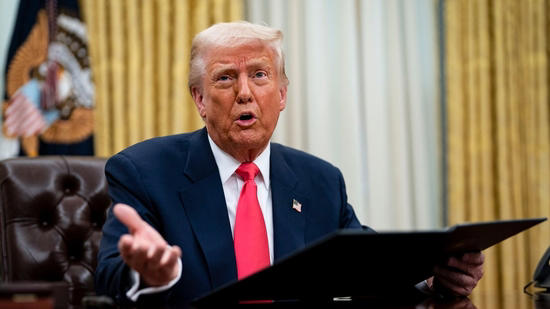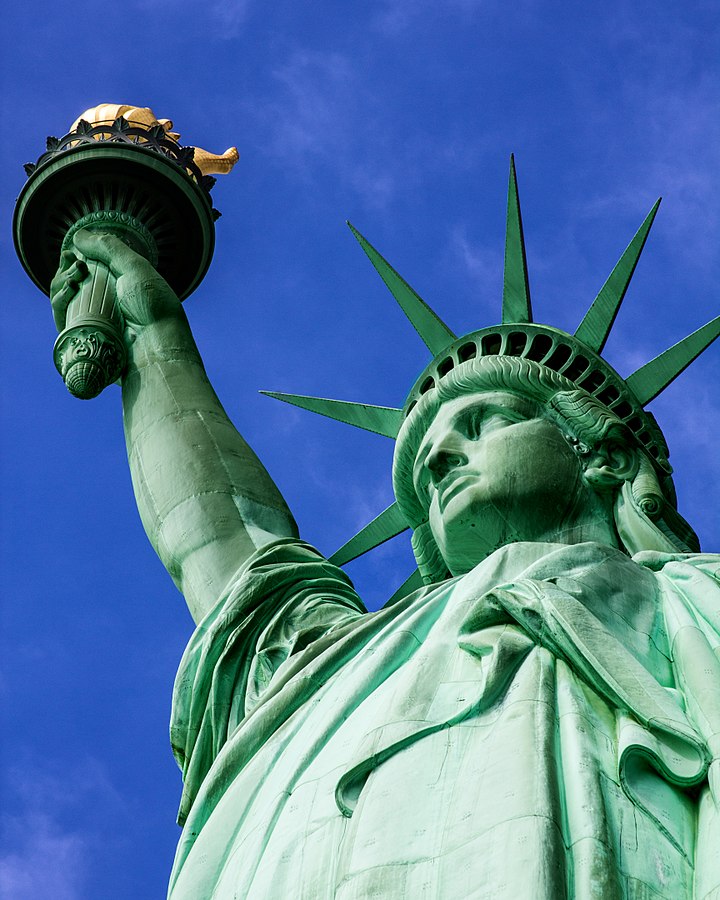Donald Trump has asked the U.S. Supreme Court to decide on birthright citizenship, taking aim at the 14th Amendment’s promise of citizenship for children born in the United States to non-citizen parents. The ruling could have significant consequences for immigration policy and the legal status of millions.


Over the past decade, the debate on birthright citizenship in America has been one of the focal points of discussion during political debate, especially against the backdrop of national security and immigration debates. Previous President Donald Trump, whose immigration policies are infamous for controversy, has previously tried to defy the constitutionality of birthright citizenship to the children born within the U.S. to parents who are non-citizens. This crusade just went a major way as Trump and his attorneys recently asked the U.S. Supreme Court to end the controversial topic once and for all.
The stakes are high because the ruling has the potential to redefine immigration policy and fundamentally change the legal framework for millions of people already residing in the country.
Birthright Citizenship: The Constitutional Foundation
The doctrine of birthright citizenship is rooted in the 14th Amendment to the U.S. Constitution, which reads in part, “All persons born or naturalized in the United States, and subject to the jurisdiction thereof, are citizens of the United States and of the state wherein they reside.” The provision, enacted in 1868, was meant to enfranchise recently freed African Americans and their progeny, providing that people born on American soil, no matter the citizenship of their parents, would be deemed full citizens. This legal framework has been broadened over time to include all children born on U.S. territory, no matter what the parents’ legal status.
The importance of birthright citizenship cannot be understated, as it has long been viewed as a cornerstone of American democracy, ensuring equal rights for all citizens, regardless of their background. It serves as a form of guarantee against discrimination based on national origin or race. Moreover, birthright citizenship plays a critical role in ensuring that children born to immigrant parents are not relegated to a permanent underclass due to the legal status of their parents.
Yet, in the last few decades, there has been increasing political pressure to abolish or limit birthright citizenship, particularly among right-wing circles. Supporters of the limitation of birthright citizenship assert that it is a magnet for illegal immigration, also known as “anchor babies,” whereby illegal parents come into the U.S. with only the intention of giving birth in the country in order to qualify their child for citizenship. Opponents argue that the policy invites individuals to take advantage of the system and that the U.S. should not automatically grant citizenship to children born to parents who are in the nation illegally.
Trump’s Longstanding Opposition to Birthright Citizenship
Donald Trump’s opposition to birthright citizenship has been outspoken and consistent. Running for president in 2016, Trump caused a stir by promising to cancel out birthright citizenship by executive order, contending the practice was inconsistent with the historical meaning of the 14th Amendment. He argued that the provision was never intended to cover the children of illegal aliens, a view that many constitutional lawyers and jurists have disputed on the basis of the amendment’s plain language and a long history of legal precedent.
During his presidency, Trump remained committed to policies that would restrict or abolish birthright citizenship. Trump’s administration proposed a series of policies limiting immigration to stem the tide of undocumented immigrants and restricting asylum policies. Contrary to public opposition, Trump’s rhetoric concerning birthright citizenship never wavered, and his lawyers pursued options for contesting the interpretation of the 14th Amendment in court.
The Legal Struggle: Supreme Court Intervention
In an action that confirms the ongoing political relevance of the issue of birthright citizenship, Trump has proceeded to take the issue to the U.S. Supreme Court. Having lost multiple legal cases at lower courts, his lawyers petitioned the highest court in the land to decree whether the promise of birthright citizenship under the 14th Amendment should extend only to kids born to permanent residents who are lawful or Americans.
The lawsuit poses basic questions regarding the application of the 14th Amendment and the nature of birthright citizenship. Trump’s lawyers contend that the clause cannot be applied to children of parents who are in the United States illegally, claiming that the word “jurisdiction” used in the amendment does not cover people who are not legally allowed to be in the U.S. Under this reading, the children of illegal aliens would not automatically become citizens, a change that would dramatically revise current law.
It is criticized that this reading is a blatant effort to disempower the constitutional rights of individuals and families, especially vulnerable immigrant communities. The legal experts who defend birthright citizenship argue that the language of the 14th Amendment is clear and that its meaning being altered would necessitate a constitutional amendment, not an executive order or a judicial interpretation.
The case is likely to attract widespread attention, as it involves a highly contentious issue in American society. If the Supreme Court does accept the case, its decision could have profound implications not just for birthright citizenship but for U.S. immigration policy in general. Legal experts and immigration activists are already preparing for what may be a landmark ruling, one that may redefine the country’s concept of citizenship and the rights of immigrants.
The Political Implications
The possibility of a Supreme Court decision on birthright citizenship has significant political implications. Trump’s effort to curb birthright citizenship is viewed by many as part of his overall “America First” agenda, which aims to advance the interests of U.S. citizens at the expense of immigrants. The agenda’s proponents say that curtailing birthright citizenship would slow the flow of illegal immigrants into the U.S., while its opponents view it as an assault on the country’s core values of equality and inclusiveness.
The case is also bound to have an important effect on the 2024 presidential campaign. Immigration continues to be a contentious issue in US politics, with most Republican candidates positioning themselves behind Trump’s tough line on border security and citizenship. If the Supreme Court rules in Trump’s favor and limits birthright citizenship, it could rally his base of voters and further intensify the anti-immigrant passion that has powered much of his political life. Conversely, a decision upholding birthright citizenship would be a major win for immigrant rights organizations, who have been waging a long battle to uphold the rights of U.S.-born children.
Opponents of Trump’s immigration agenda would likely interpret such a decision as a rebuke of his attempts to limit the rights of vulnerable populations and could employ it to galvanize resistance to restrictive immigration policies.
The Future of Birthright Citizenship
As the Supreme Court prepares to take up this contentious issue, the future of birthright citizenship hangs in the balance. The court’s decision could either reinforce or dismantle a century-old legal tradition, with profound implications for millions of immigrants and their families. For now, the fate of birthright citizenship remains uncertain, but the case underscores the ongoing debate over the role of immigration in American society and the interpretation of the Constitution.
The question of whether the Supreme Court will affirm or redefine birthright citizenship is not a legal one alone—it is a question of the values that make the United States a nation. While the nation awaits the court’s decision, the immigration, citizenship, and American identity debate will continue to frame the national discussion.
